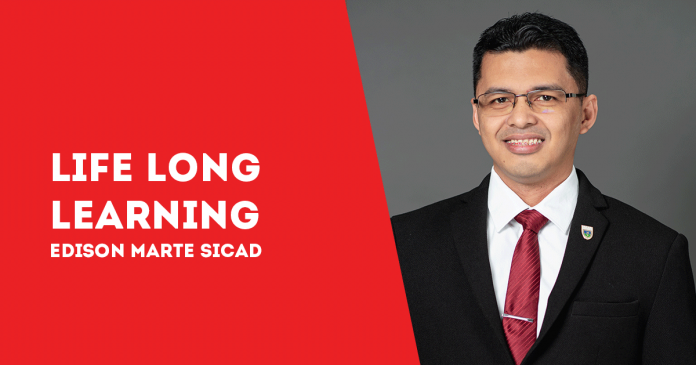
BY EDISON MARTE SICAD
“The medicine that can cure us may also be the poison that can kill us.”
WHEN Doña Teodora warned her son, Jose Rizal, about the dangers of too much knowledge, Rizal may have agreed with her. But the flame is truly irresistible for the moth. Rizal continued his studies in Europe. And, as the cliche goes, the rest is history.
Was Doña Teodora wrong in giving such an advice to her son? Could Rizal had been a “better” hero if he obeyed his mother?
When can we say that there is already more than enough knowledge?
How can the pursuit of more knowledge become dangerous?
If knowledge is power, what kind of knowledge do our powerful politicians possess?
The circumstances we face, and the people we encounter in our lives, may give us options, present us with opportunities, or cause us headaches and (more) problems. But eventually, it is us who decide (consciously or by mere habit). We are—hopefully—free to choose, and we are responsible for our choices.
I am curious as to how do we go about in making our decisions, in choosing what to do, or in selecting the most “reasonable” option.
My first year of work-experience at the Ramon Q. Avanceña Hall of Justice, Iloilo City, reminded me of the book of Dr. Wayne Dyer entitled Pulling Your Own Strings.
Allow me to share these three sentences from his book:
1. “We limit ourselves in search of security, never realizing how easily others can confine us further, using our limitations against us.”
Doña Teodora and Jose Rizal, both mother and son, may have seen the same future. However, in the former, the love of a mother to a son prevailed. In the latter, the love of a son to a motherland became the ultimate choice.
The value of an action, as justified by the doer, may have a different appreciation from the intended receiver.
But there is one thing I learned from the workplace: to earn more, to be paid more, working hard is necessary, but not enough.
2. “You, and only you, must decide to take the suggestions and turn them into constructive, self-fulfilling behavior.”
Consider all criticisms as feedback, as data necessary for self-improvement. However, to focus on the learning aspect of the good or bad experience is not that easy.
There is a lesson to be learned from the success or failure of a project, a fulfilling or devastating outcome of a decision, or an unexpected turn of events. But only those who can learn from such results will be able to focus on the improvement of the self and avoid being immobilized by guilt and depression.
In my work, I have learned that for one to be productive, a person must take charge of creating his or her own system of finishing a task.
A good sign of professionalism is when a person does the assigned task diligently without being supervised. In other words, you do your best even if no one is watching.
3. “Understand that many people need attachments to institutions in order to feel important.”
I don’t see anything wrong with this. There are people who believe that solace and meaning in life can only be found from work and not from any other person or relationship.
The key words are meaning and purpose.
Also, there are employees who would rather choose a simple day-to-day task than immerse themselves into daily unexpected encounters that demand high level critical thinking and accountability.
At the end of the day, it is human respect and dignity that matter the most.
Rizal and his mother may have differed in their opinion as to what makes a life worth living—or dying. But we can learn a thing or two from them: a mother willing to sacrifice her life for her own son, and a son living and offering his life for the motherland.
Today, in our democratic and freedom-loving society, we can still be enslaved and victimized. For as we work in the realization of our hopes and dreams, some people may make it difficult for us, challenging our resolve, doubting our beliefs, questioning our decision.
How then do we balance the demands and pressure of society with our needs for personal growth and peace of mind? (To be continued)PN

